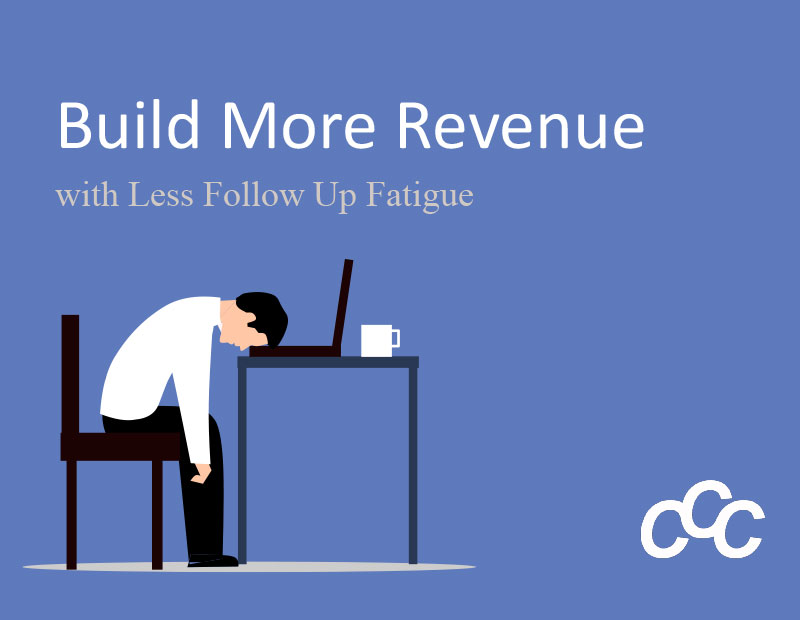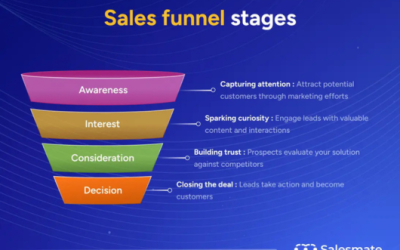[vc_row][vc_column][vc_column_text]Relationships are hard work. Whether you are a spouse, parent, teacher, coach, or salesperson, you know that building and maintaining relationships takes effort and sacrifice. You also know that it does not happen overnight. As a salesperson or business owner, you probably know this better than most people, because you are constantly juggling ongoing customer relationships while trying to build new ones. It can be stressful, but it can also be very rewarding.
Now more than ever as we adapt to customer relationship building through the lens of remote selling and customer service, we need to make sure we have the tools in place to help us nurture relationships and build new relationships while keeping our sanity. In the last few blogs, we crafted several stories about Fred and Mary and how they approached customer relationships. Fred used spreadsheets which, in the end, caused him to do more work with less efficiency. It caused unnecessary stress and affected his relationship with customers. Mary, on the other hand, used a CRM as a tool to help her be more efficient and provide better customer service.
We know that CRM means customer relationship management. It is not meant to do the relationship-building for you, but, rather, be a tool to help you grow your customer relationships more efficiently and effectively. In this blog, we are going to focus on the relationship part of the CRM and see how it helps you become a better salesperson and sales team.
Relationships begin as transactional but should not stay in this phase. Customers come to you because you have a product or service that they need. It is something that will make their life better. This first point of interaction is transactional. Using your CRM, you (and your team) can collect data and learn about your customer, so no matter who interacts with the customer, you will all have the same real-time information about them. You can take this data to build rapport, trust, and, ultimately, loyalty.
Customers want to know you are there in time of need to help resolve their issue quickly. They want the assurance that you know their history as a customer and are knowledgeable to help them in their time of need. Using your CRM to record your customer’s buying and support history helps you to stay on top of customer support. The last thing they want to hear is “let me look into your profile and get back to you” or “let me ask someone who is aware of your issue.” Time is of the essence for every one of your customers. A crucial component of customer relationship building is quickly resolving issues, and a CRM can help you do this.
Improve customer experience and loyalty through automation. As business owners and salespeople, we are very busy with closing deals, handling big issues, and other responsibilities. It is difficult to remember or find time to follow up. Follow up can be sharing another product based on a recent purchase, notifying your customer about specials, or sending a thank you note. Using your CRM to set up automated messages based on sales funnel benchmarks or criteria will improve your customer experience. They will not feel forgotten and will be more likely to reach out for additional support or make another purchase.
Customers are loyal when you consistently exceed expectations. Your CRM can help you stay one step ahead of the customer by forecasting their needs and behaviors. You can do this by looking at their behavioral patterns recorded in the CRM as well as the behavioral patterns of similar customers. If you see that customers generally ask for assistance within two weeks of purchase, stay ahead of them and feed them resources that will help them get adjusted more quickly. Exceeding expectations will show them that you value their time and as individuals.
There is no reason to take the full weight of customer relationship building upon your shoulders. This leads to Follow Up Fatigue. As salespeople, we want to be genuine in our relationships with customers, but we must also be smart. Using a CRM as a tool to effectively build relationships is a smart approach. If you are not using a CRM and would like to learn more about its benefits, please reach out to us at jonr@cccsolutions.com or 301-332-0613.[/vc_column_text][/vc_column][/vc_row][vc_row][vc_column][vc_custom_heading text=”More CRM Topics” font_container=”tag:h2|text_align:center” use_theme_fonts=”yes”][vc_empty_space][vc_basic_grid post_type=”post” max_items=”2″ element_width=”6″ orderby=”rand” grid_id=”vc_gid:1598963160044-2436d887-e4ae-0″ taxonomies=”3, 23, 24″][/vc_column][/vc_row]





